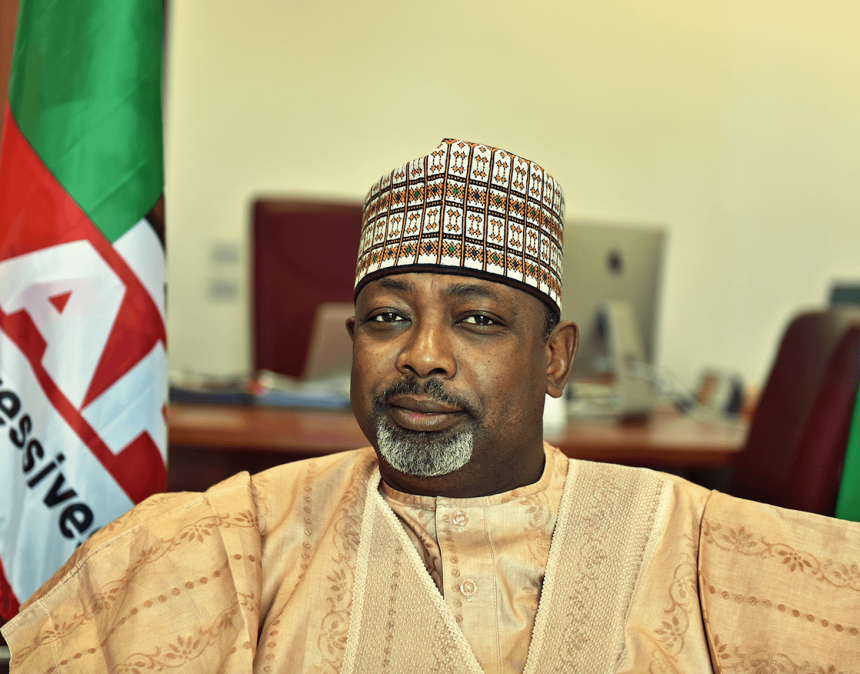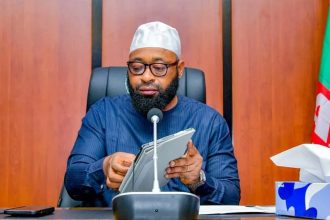The Federal Government, in collaboration with the Leonard and Nkiruka Okorkwo Foundation, Heinrich Böll Foundation, and other stakeholders, on Tuesday unveiled the 2025–2030 revised National Youth Manifesto in Agriculture for Nigeria.
Also launched at the event in Abuja was the 2025 Nigerian Youth in Agribusiness Call to Action, a framework designed to reposition young people at the heart of agricultural transformation.
Speaking at the ceremony, the Minister of Agriculture and Food Security, Senator Abubakar Kyari, described the manifesto as a youth-owned roadmap for the future of agriculture in Nigeria.
“This manifesto is proof that the young populace is not just beneficiaries of policy but architects and drivers of the nation’s agricultural future,” Kyari said.
Represented by Mrs. Safina Abdullah, Deputy Director of Planning and Policy Coordination in the ministry, Kyari noted that the unveiling was not symbolic but a “call to duty.” He assured that the ministry was committed to turning the document into actionable policies, investments, and opportunities.
The minister explained that the manifesto is anchored on eight key priorities: agroecology and climate resilience, access to land and inputs, youth-responsive finance and market access, agritech innovation and research, capacity development, gender and social inclusion, policy advocacy and governance, as well as mentorship and intergenerational learning.
According to him, the revised document aligns with existing frameworks such as the National Agriculture Technology and Innovation Policy (NATIP) 2022–2027 and the 2025–2030 revised National Gender Policy in Agriculture.
“The ministry will integrate the Nigerian Youth in Agribusiness Call to Action into the revised National Gender Policy in Agriculture and its Strategic Plan of Action 2025–2030. We are fully committed to developing a National Youth in Agribusiness Strategy in line with the African Union’s African Agribusiness Youth Strategy,” Kyari said.
He stressed that through targeted programmes, such as mechanisation, access to finance, digital platforms, and extension services, the government would empower a new generation of farmers.
“They will take the lead in shaping a more resilient, innovative, and inclusive agricultural sector,” the minister added.
In her remarks, Nkiruka Okorkwo, Co-Founder of LANOF, described the manifesto as a policy advocacy tool and a youth empowerment mechanism for building a resilient and future-focused food system.
“The strength of this manifesto lies in its co-creation by the youth, and for the youth. These strategies require multi-sectoral collaboration, technical support, and long-term investment,” Okorkwo said.
She explained that the document is fully aligned with the African Union Youth Agribusiness Call to Action and provides practical pathways to unlock youth leadership across agricultural value chains.
Sophie von Knebel, Country Director of HBF, commended the collaborative effort that produced the manifesto, expressing optimism that it would drive a transformation of Nigeria’s agricultural sector.
Similarly, Blessing Akhile of the National Gender Steering Committee, ActionAid Nigeria, described the unveiling as “heartwarming,” reaffirming ActionAid’s commitment to promoting inclusion in agriculture and ensuring that the manifesto translates into tangible action.
Kyari lauded LANOF, HBF, and youth leaders from all six geopolitical zones for their contributions, urging young people to rise to the challenge.
“Own this process. Build enterprises, not just farms. Innovate solutions, not just demand opportunities,” he charged.









